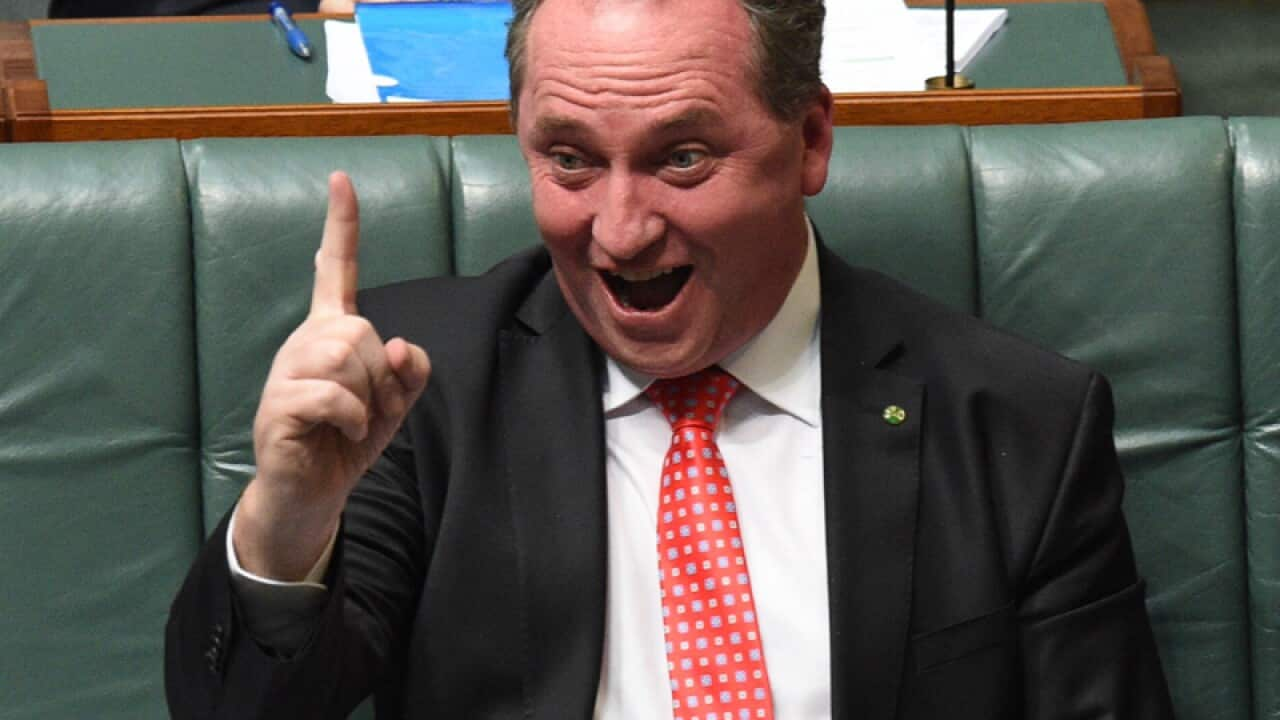Dick Smith’s views on Australia’s housing affordability crisis have been debunked by leading property and planning experts.
The businessman blamed immigrants and new arrivals for the country’s high house prices on Tuesday night on Sky News.
"All of our problems are from this unbelievable population increase. You can't drive in Sydney at the moment. The housing prices are enormous,” Mr Smith said.
"The most fundamental right is to get a house with a backyard. Young couples can't do that anymore, purely driven in 95 per cent of cases by the enormous population increase, mainly driven by ridiculous immigration.
"The main point that's driving our unaffordable housing is about 200,000 immigrants come in a year. That's five jumbo loads a week that go out empty."
Dick debunked
Shane Garrett, a senior economist from the Housing Industry Association, told SBS News that immigration is not the cause.
“Difficult affordability in the housing sector is primarily the result of supply side issues, like taxation of new housing, infrastructure funding, the slow release of land, and bottlenecks in the planning system,” he explained.
Dr Dallas Rogers, a senior lecturer in architecture, design and planning at the University of Sydney, says Australia’s housing problems are due to historic practices.
“The reason that we have a housing affordability crisis in places like Sydney and Melbourne is because of an at least 50-year history of housing practices, where housing after the Second World War started as somewhere you lived in,” he said.
READ MORE

Tax talk lingers in housing debate
“Progressively we’ve been thinking of housing as somewhere to park capital as an asset class.”
Dr Rogers also called Dick Smith’s comments “problematic”.
“And that’s because Australia’s whole history is a history of immigration from the point of first contact with the Indigenous people,” he said.
“In one way, Dick Smith is right that immigration has a role to play in housing affordability problems, but it’s not the newest wave of immigrants that’s the problem – it’s the 230-odd year history of immigration that has underwritten the housing affordability problem.”
Dick Smith has previously expressed support to restrict migration levels to enable, what he calls, a “sustainable” population.
'No leg to stand on'
Dr Rogers believes the latest comments are “probably to do with groups like the new middle class from China driving up property prices”.
“On that point, I don’t think he has a leg to stand on,” Dr Rogers said.
“There was a Federal Government report that showed recently that foreign investment into residential real estate by groups like the new Chinese is having a very small impact on housing affordability.”
The experts also said they believe that immigration actually assists the housing sector.
“Immigration is certainly beneficial for housing, because as we get a larger population in cities it does allow the achievement of very important economies to scale in provision of certain public services,” Mr Garrett said.
“And immigration plays a vital role in that process in the reaping of those rewards as population centres become larger."
Mr Garrett added that the generally high education and skill sets brought by migrants “boosts productivity” and ensures “that the long-term living standards are maintained at a reasonably high and sustainable level”.
“For us to maintain a healthy balance between the number of people working and the number of people that require support from those working, it will be important for Australia to have a substantial intake of migrants, particularly of the 20s and 30s age groups as we have at the moment,” he said.
Dr Rogers believes Mr Smith’s statements detract from the real issues facing aspiring homeowners.
“As we move from housing as somewhere to live in, and housing as an investment vehicle, that’s what when we introduce all the problems with housing affordability,” he said.
“We need to think about how we change the way we think about housing, and take it back to the use value of homes – a home as a place to live in. And that involves domestic and foreign investors.”












